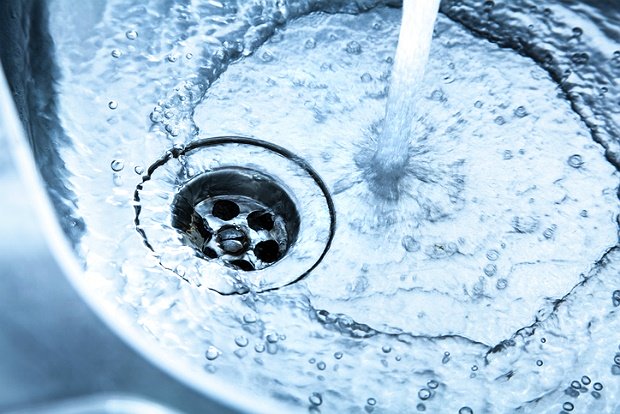(image: iStock)
In light of the city’s news yesterday, here are some tips on how to survive on 50 Litres or less a day.
The City of Cape Town released a statement saying, “we have reached a point of no return” with a detailed implementation of the new Level 6b water restrictions that limits residents to 50 Litres of water per person a day (double the amount of what is expected when Day Zero arrives).
Even if the city restricts us to 25 Litres per day, I would rather that came through my taps than having to stand in a queue and lug it around. It serves us all to save now!
We can’t do much about the politics and we can’t do anything about the weather, but we CAN all come together to try and save the day! Let’s save water while we still have something to save.
At this point literally EVERY DROP counts!
ALSO READ: City paints the town green with new water map
My family of five (including infant twins) uses between 30 and 40 Litres per person per day. This is what we do…
In the bathroom
1. Collect clean water that you run off before showering while waiting for hot water, and use this for cooking and drinking. We have a closed container with a tap that we then move to the kitchen when it is full; this is adequate for our cooking and drinking needs.
2. Collect any grey water you can and use that to flush the toilet. Turn off the taps to the toilet so you don’t accidentally forget. (I have found 40 years of habit hard to break).
3. Turn the shower off while soaping and only on for a few seconds to wet and rinse. Start washing your hair less often to “train it” for Day Zero.
4. Keep a bottle of bleach in your bathroom and add a few drops into stinky loos and grey water buckets.
5. Bath with a friend – my children are too small to shower so I bath them every 2 or 3 days (crawling babies get very dirty). Everyone baths together in a small quantity of water (about 30 litres) and on the other days we make do with a cat bath. The bath water is kept for flushing.
In the kitchen
As I mentioned we use our cold water run-off for cooking and drinking.
1. Collect any water left in glasses or water bottles before washing and use in pet bowls or to water house plants.
2. Use a water bottle instead of glasses so you can put it back in the fridge at the end of the day if there is any water left in it.
3. Cook foods such as vegetables in the microwave or steamer instead of boiling them in water. Use a steamer (electric or bamboo) that has multiple tiers to steam more than one thing at a time. Banish pasta, boiled eggs etc! If you do cook these, strain the water off into a bucket and use this for flushing.
4. Keep a bowl of water to rinse vegetables and fruit and at the end of the day use that water in pet’s bowls or for flushing.
Washing up
I pack my dishwasher to the brim before I run it, and according to the specs (Defy Eco) it uses 11 litres per wash. Because I have twin babies I also run water to wash their baby bottles by hand everyday. (Try drawing a line on the side of the sink so you can see where to fill to). Once I have washed the bottles I wash up anything else that is lying around to maximise the use of this water. Then I run out the dirty soapy water (or save and use for flushing if you can) and I keep the rinse side and leave it there for the day for hand washing, washing out cloths for wiping etc.
1.Assign everyone in the house or office a mug for the day and only wash up at the end of the day.
2. Serve finger foods that don’t need a plate (sandwiches, wraps, pita breads). Or switch to paper plates.
Washing laundry
My washing machine, on the other hand, uses 56 litres per wash! This is more than one person’s quota per day. So ONLY wash what is necessary.
1. Hang your bath towels in the sun in the morning as this will dry them out quickly and prevent them from smelling. Sun is also a brilliant germ-killer and this will mean you need to wash your towels less regularly.
In the garden
1. Collect any and all rainwater that you can. This can be used for flushing, and if you are very lucky a little watering in the garden.
2. Accept that many of your high water-need plants will probably not survive and embrace water-wise gardening.
Outside of the house
Remember that your water total includes what you use outside the house (at the gym, eating at restaurants, at work etc). So don’t forget to practice water saving ways where ever you are.
If you have other tips on how to save water, we urge you to PLEASE SHARE them below in the comments section!
ALSO READ…
Cooking in the midst of a drought: Top Western Cape chefs challenged to create a menu with no water
That old adage, “necessity is the mother of invention” has never been more true and relevant in the water-strapped environment in which we currently find ourselves. (image: iStock) We’re all aware how distressing the water situation is in the Western Cape and the City of Cape Town has released multiple warnings that there aren’t many days of water left!

